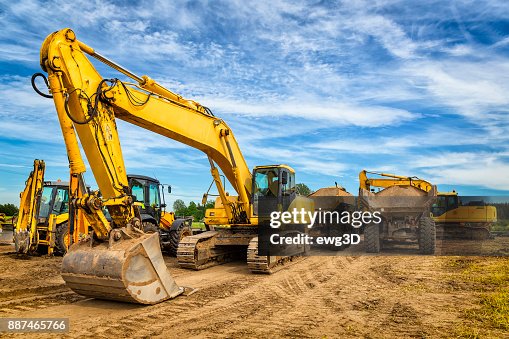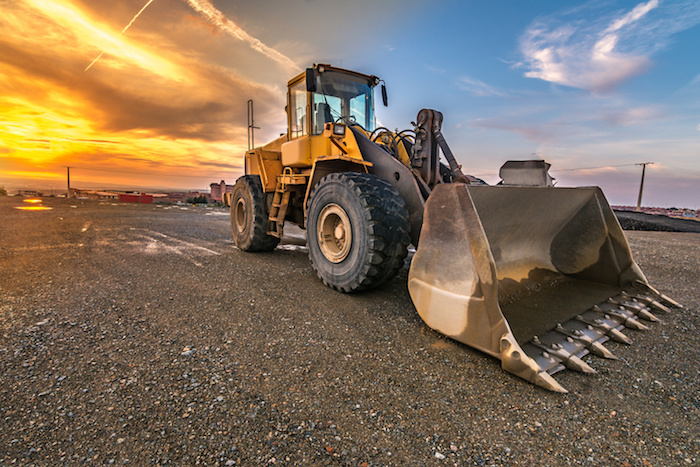Rental Company in Tuscaloosa, AL: Top-Quality Equipment for Every Task
Rental Company in Tuscaloosa, AL: Top-Quality Equipment for Every Task
Blog Article
Checking Out the Financial Perks of Leasing Building And Construction Devices Contrasted to Owning It Long-Term
The decision in between leasing and having construction equipment is critical for monetary monitoring in the market. Renting deals immediate price financial savings and functional flexibility, permitting companies to allot resources more efficiently. Understanding these nuances is crucial, particularly when considering just how they align with details project demands and economic approaches.

Expense Contrast: Leasing Vs. Owning
When reviewing the economic implications of renting versus having construction equipment, an extensive price contrast is essential for making informed choices. The option in between renting and owning can significantly influence a company's profits, and comprehending the connected expenses is important.
Leasing building and construction devices usually entails reduced in advance costs, allowing businesses to assign capital to various other operational needs. Rental expenses can gather over time, possibly going beyond the expense of ownership if devices is required for an extensive duration.
Alternatively, having building equipment requires a considerable first investment, together with continuous prices such as insurance policy, devaluation, and financing. While possession can lead to long-lasting cost savings, it also binds resources and may not supply the very same level of flexibility as leasing. In addition, owning tools requires a commitment to its application, which might not constantly straighten with project needs.
Eventually, the decision to rent out or own needs to be based upon a detailed evaluation of particular task demands, financial capability, and lasting calculated objectives.

Upkeep Responsibilities and expenditures
The selection in between possessing and renting out building tools not just entails monetary factors to consider yet likewise incorporates continuous maintenance expenses and duties. Possessing equipment requires a significant commitment to its upkeep, that includes routine evaluations, repair work, and prospective upgrades. These responsibilities can rapidly build up, resulting in unexpected expenses that can stress a budget.
On the other hand, when renting out devices, maintenance is usually the obligation of the rental business. This arrangement permits professionals to avoid the economic problem connected with damage, in addition to the logistical challenges of scheduling repair work. Rental arrangements usually include provisions for upkeep, meaning that contractors can concentrate on completing projects as opposed to fretting about equipment condition.
Furthermore, the varied variety of tools available for rent makes it possible for firms to select the most recent models with advanced modern technology, which can boost effectiveness and performance - scissor lift rental in Tuscaloosa, AL. By choosing rentals, companies can prevent the lasting responsibility of equipment devaluation and the linked upkeep migraines. Ultimately, reviewing maintenance expenditures and duties is vital for making a notified decision regarding whether to have or rent out construction tools, considerably affecting general project prices and functional effectiveness

Devaluation Effect On Ownership

A significant aspect to consider in the decision to possess building and construction devices is the effect of devaluation on general ownership costs. Depreciation represents the decrease in worth of the tools over time, affected by variables such as usage, wear and tear, and improvements in technology. As tools ages, its market worth diminishes, which can significantly affect the owner's monetary setting when it comes time to market or trade the devices.
For construction business, this depreciation can translate to significant losses if the tools is not used to its greatest capacity or if it lapses. Owners should account for depreciation in their economic estimates, which can result in greater general costs contrasted to renting. Furthermore, the tax ramifications of depreciation can be intricate; while it may offer some tax obligation advantages, these are usually offset by the truth of reduced resale worth.
Inevitably, the worry of devaluation stresses the significance of understanding the lasting monetary commitment associated with possessing construction equipment. Business have to very carefully evaluate exactly how usually they will certainly backhoe rental with operator use the devices and the prospective economic effect of devaluation to make an educated decision about possession versus renting.
Monetary Adaptability of Leasing
Leasing building and construction tools supplies considerable monetary adaptability, allowing firms to designate resources more effectively. This flexibility is especially critical in a sector identified by fluctuating task demands and varying work. By choosing to lease, companies can prevent the considerable capital outlay needed for acquiring devices, protecting capital for various other functional demands.
Additionally, renting out devices allows business to tailor their devices choices to details job requirements without the lasting dedication related to possession. This means that businesses can quickly scale their equipment stock up or down based on anticipated and current job demands. Subsequently, this versatility minimizes the threat of over-investment in machinery that might end up being underutilized or obsolete with time.
An additional financial advantage of renting is the possibility for tax advantages. Rental settlements are usually thought about business expenses, permitting prompt tax deductions, unlike devaluation on owned equipment, which is spread out over numerous years. scissor lift rental in Tuscaloosa, AL. This prompt expense recognition can further improve a company's money position
Long-Term Job Considerations
When reviewing the long-term needs of a building and construction organization, the decision in between owning and renting devices ends up being extra complex. For tasks with extensive timelines, buying equipment might appear helpful due to the possibility for lower general costs.
Furthermore, technological advancements posture a considerable factor to consider. The construction sector is evolving rapidly, with brand-new equipment offering enhanced performance and safety functions. Leasing enables companies to access the current technology without committing to the high upfront costs connected with investing in. This adaptability is especially valuable for businesses that handle diverse projects needing different kinds of tools.
Furthermore, financial security Get the facts plays a critical function. Possessing tools often involves considerable capital expense and depreciation problems, while renting out permits even more predictable budgeting and cash flow. Ultimately, the choice in between having and leasing should be aligned with the strategic goals of the construction business, taking right into account both anticipated and existing task demands.
Conclusion
In conclusion, renting out building and construction equipment supplies substantial monetary benefits over long-term possession. Ultimately, the decision to rent out rather than own aligns with the vibrant nature of building projects, allowing for versatility and accessibility to the newest equipment without the check my reference financial problems connected with ownership.
As tools ages, its market worth decreases, which can considerably impact the proprietor's economic setting when it comes time to trade the tools or sell.
Renting construction devices offers substantial economic versatility, enabling companies to assign resources more effectively.In addition, renting out equipment enables firms to tailor their equipment choices to details task demands without the long-term dedication associated with possession.In final thought, renting building and construction devices supplies substantial monetary advantages over long-term ownership. Eventually, the decision to lease instead than very own aligns with the dynamic nature of construction projects, allowing for adaptability and access to the newest devices without the financial concerns connected with possession.
Report this page